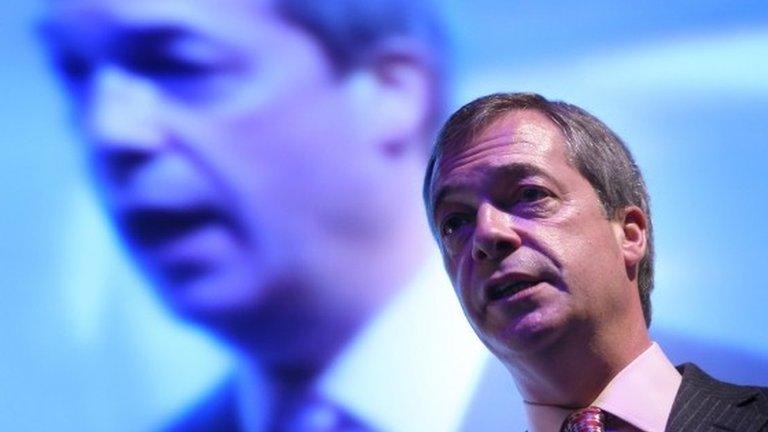Nick Clegg v Nigel Farage: What to watch out for
- Published
Nick Clegg and Nigel Farage go head-to-head later on BBC Two at 19:00 BST in the second of two debates on Britain's future in Europe. Here are the key points to watch out for.

Fact check - Romanians and Bulgarians
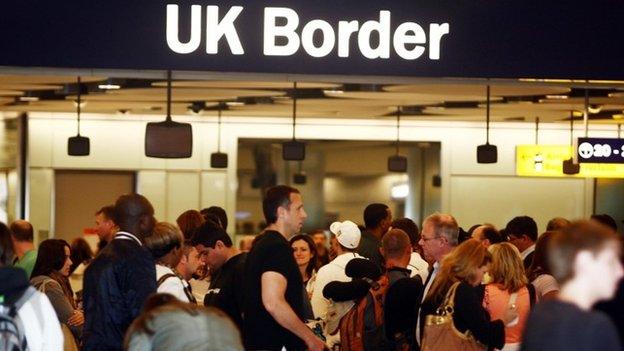
Some of the most heated exchanges in the first debate were about the numbers of EU immigrants coming to work in the UK - and this is bound to feature again on Wednesday night.
Brandishing a UKIP leaflet, Mr Clegg said: "There aren't even 29 million Romanians and Bulgarians living in Romania and Bulgaria. It is simply not true."
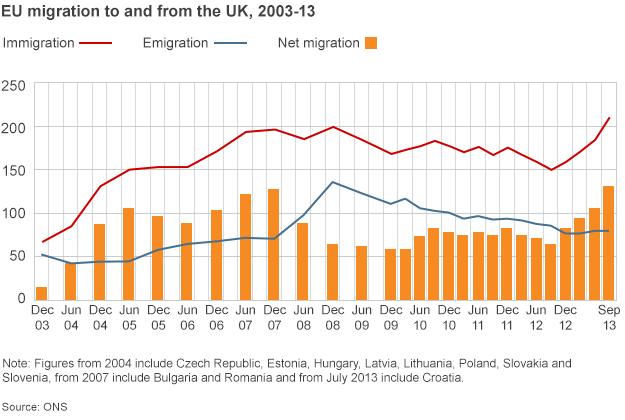
The World Bank states that the population of Romania is 21.33 million and the population of Bulgaria is 7.3 million. So the total population of the two countries is 28.6 million. So Mr Clegg is technically correct - but he could have forgiven the UKIP leader for rounding up.
Mr Farage claimed two million Romanians and Bulgarians had "left already and they've gone to Italy and Spain".
Channel 4 looked into this using Eurostat, external and found 888,000 of them in Italy and 823,000 in Spain - a total of 1.71 million.

Vladimir Putin
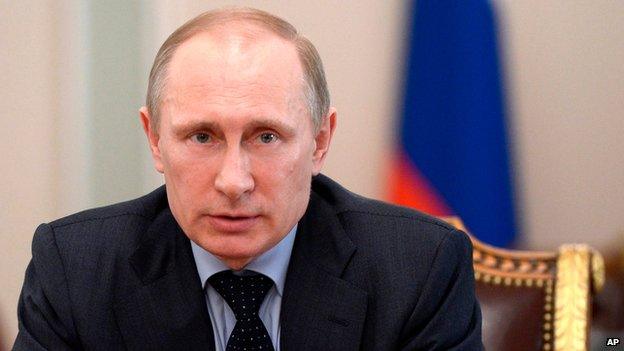
The Russian president is likely to be one of the biggest flashpoints in Wednesday's debate.
Nigel Farage's claim - in a surprising twist at the end of last week's clash - that the EU had "blood on its hands" for encouraging revolution in Ukraine prompted an incredulous reaction from Mr Clegg.
Not on the night itself, but on the following day when Mr Clegg took part in his weekly LBC phone-in. He said he was "shocked" the the UKIP leader was so blinded by hatred of the EU that he was "siding with Vladimir Putin".
Mr Farage hit back by saying he did not support Putin's actions in Ukraine but he stood by his attack on the "vanity" of EU foreign policy. But he may have handed Mr Clegg more debate ammunition in an interview with Alastair Campbell in GQ magazine,, external when he admitted admiring the Russian leader's skills as a political "operator".

Who goes first?
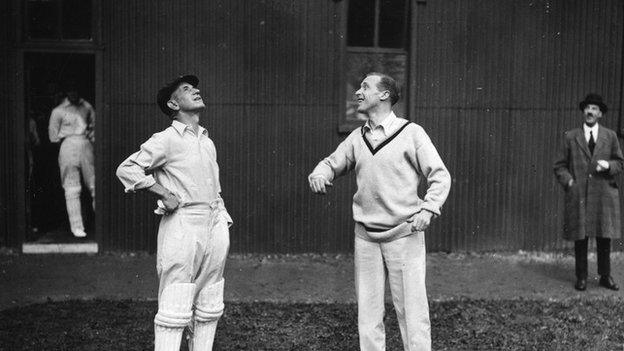
Last week Nigel Farage won the toss (of a pound coin) but opted to let Nick Clegg "open the batting", thus guaranteeing him the final word in the opening statements. Who will get the honour tonight?

Clegg's debating style
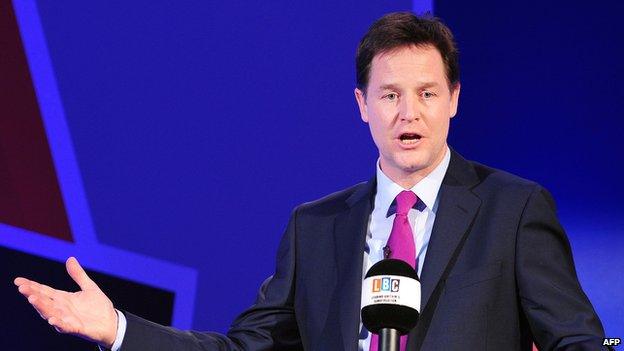
"The Lib Dem leader clearly intended to repeat his performance from 2010 - staring down the camera, talking to the public, rising above the grubby business of arguing with people," wrote Mark Wallace on Conservative Home, external.
But, added Wallace, Mr Clegg was forced to abandon this tactic half way through, when it became clear Mr Farage was winning, and started to interrupt the UKIP man more often, allowing him to claim back some ground.
The Lib Dem leader also kept up his 2010 habit - seen as patronising by some but highly effective by others - of addressing audience members by their first name, when he answered their questions.
Mr Clegg may decide to loosen up and engage his opponent more rather than addressing statements to the audience at home.

Farage's debating style
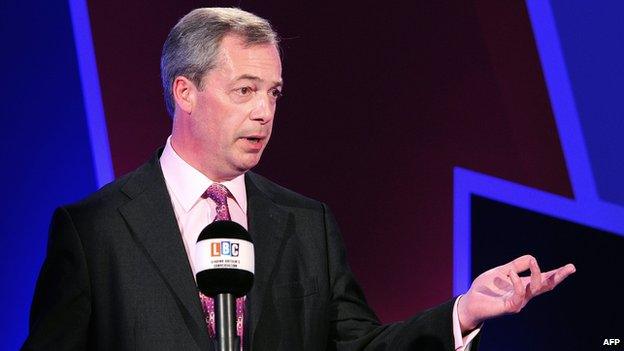
Mr Farage steered clear of jokes, for the most part, on Wednesday and got a bit of stick from some of his supporters for relying too much on dry statistical arguments. Will he lighten up a bit in round two?
This is new territory for the UKIP leader - his rival is a veteran of three general election leader debates.
Some felt he wiped the floor with Mr Clegg, thanks to his punchier style and ability to ad lib (he claimed not to have done any role-playing debate practice to prepare for the encounter).
But other commentators - including those who support his cause - wondered whether he needed to vary his tone more often.
"Farage hard to listen to for a full hour. His voice doesn't alter much in rhythm or volume #lbcdebate," tweeted Times comment editor Tim Montgomerie., external

Fact check - Three million jobs

Mr Clegg made employment his mantra last Wednesday - but his claim that three million jobs "depend" on Britain's membership of the EU sparked fierce debate afterwards.
Mr Farage claimed that figure was based on out-of-date research that had been partially rejected by one of its authors.
In 2003, the Treasury estimated three million jobs in the UK were "directly or indirectly" linked to exports to the EU, which was the source of Mr Clegg's statistic.
But in a report published last year, the House of Commons Library said it was impossible to estimate the exact number of jobs linked to EU membership. Experts also point out that Britain would continue to trade with EU countries after exiting the Union.

Battle of the presenters
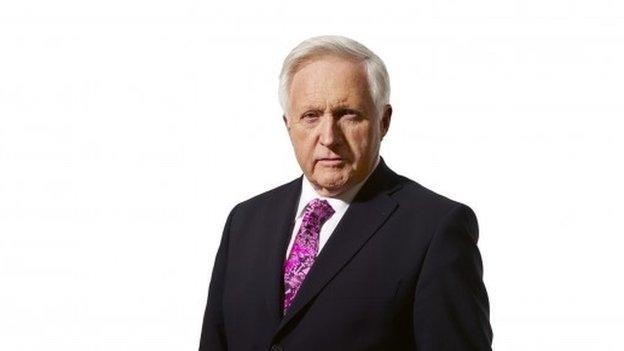
LBC's Nick Ferrari earned rave reviews for the way he handled Wednesday's debate, with The Observer's Miranda Sawyer saying he was the real winner., external
"He gave the party leaders clear rules, he moved in when they made their more ridiculous remarks and he kept his own bumptiousness in check," said the radio critic.
How will David Dimbleby - veteran of many a general election night and the BBC's flagship political discussion programme Question Time (not to mention a 2010 leaders' debate) measure up by comparison?
He last chaired a debate on Europe 40 years ago when Tony Benn, who wanted Britain out of the EU, went head-to-head with Roy Jenkins, who wanted to remain in.
Dimbleby has said he sees it as a "prize fight" and he hopes one of the two men will land a "knockout blow" after the initial sparring of last week's clash.

Style watch

Here's a selection of neck wear from political debates shown on British television - including Gordon Brown, Nick Clegg and Nigel Farage.
There is no dress code for these things - but political leaders tend to play it safe. No one goes tieless. The open necked-shirt in this line-up belongs to LBC host Nick Ferrari.
Mr Clegg and Mr Farage both sported purple ties last Wednesday. Some commentators picked up on the fact that the UKIP man was perspiring by the end of the hour - will he ditch the tie this week for a more relaxed look?
Mr Farage hit back at his critics in a piece for The Independent, external, saying he cared "passionately about liberty and democracy and not so much about whether I might get a bit sweaty on camera".

Fact check - EU legislation
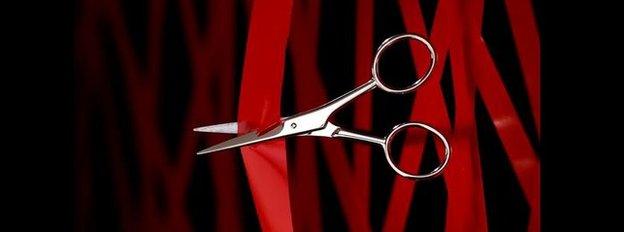
Nigel Farage's claim that the EU "makes 70% of our laws" sparked heated debate. Mr Farage admitted it was a UKIP figure, but was in line with other estimates including one from a former German leader. Mr Clegg said the figure was 7%.
A House of Commons Library paper from October 2010 says that of all acts put in place by the UK parliament between 1997 and 2009 6.8% of primary legislation and 14.1% of secondary legislation had a role in implementing EU directives.
But the paper also looks at the influence of EU rules and regulations, saying it would be possible to justify a figure "between 15% and 50% or thereabouts".
- Published3 April 2014
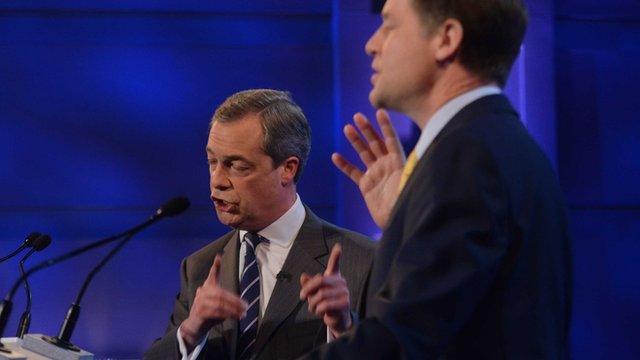
- Published2 April 2014
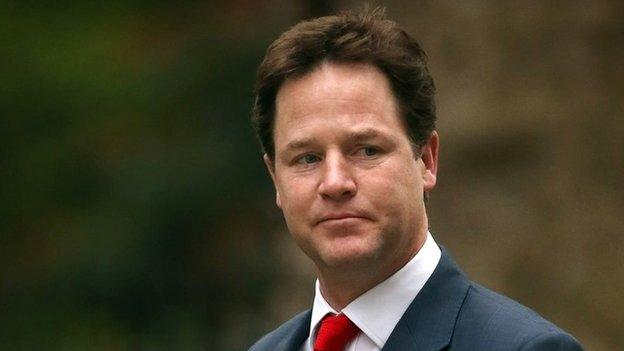
- Published2 April 2014
